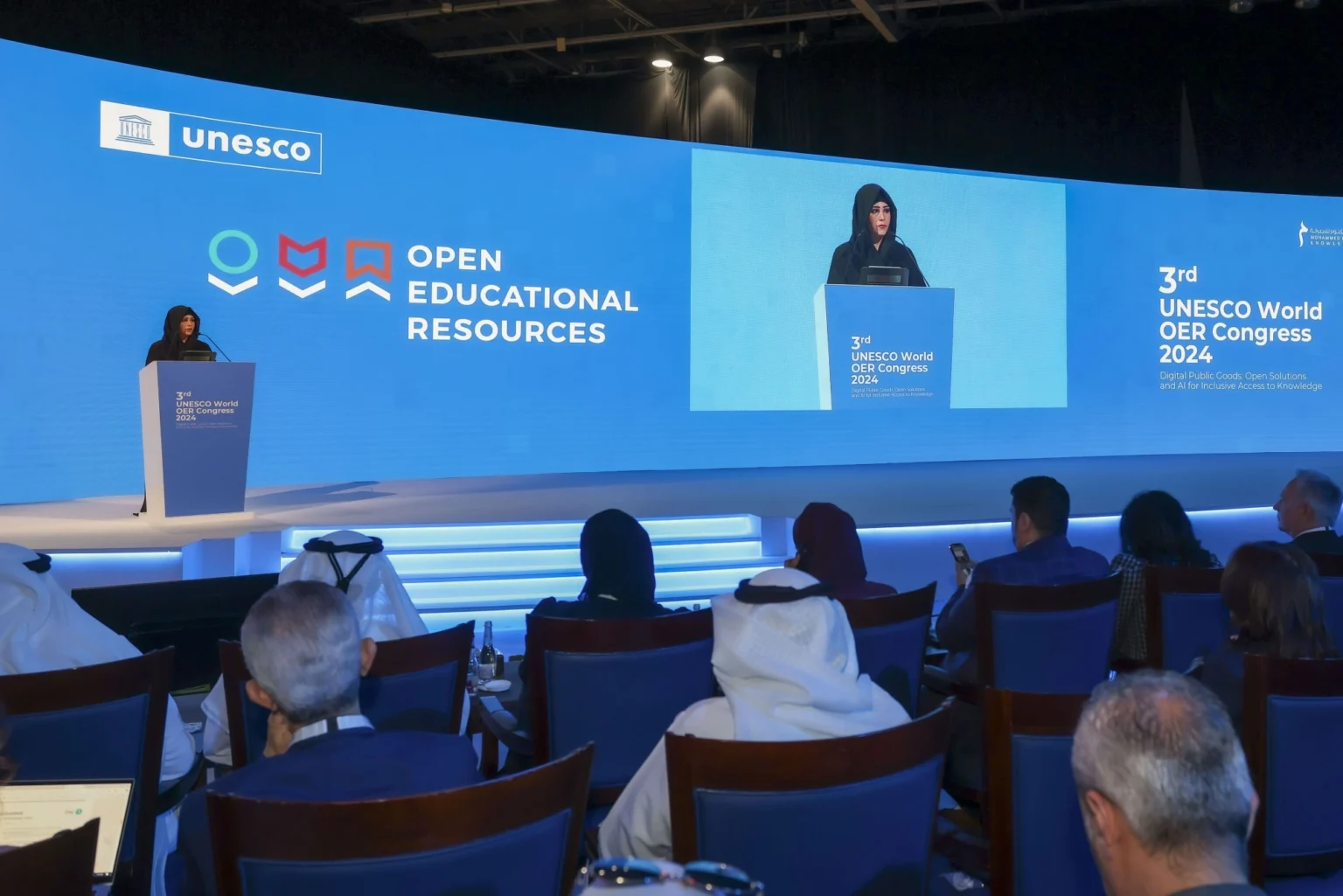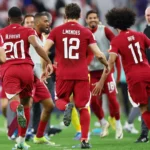H.H. Sheikha Latifa bint Mohammed bin Rashid Al Maktoum, Chairperson of the Dubai Culture and Arts Authority, inaugurated the 3rd UNESCO World Open Educational Resources (OER) Congress at the Dubai World Trade Centre. This marks the first time the Congress is hosted in the Arab world.
Organized by UNESCO in collaboration with the Mohammed bin Rashid Al Maktoum Knowledge Foundation (MBRF), the event gathers global leaders, policymakers, and innovators to explore the potential of open educational resources (OER) and artificial intelligence (AI) in improving equitable access to knowledge.
With the theme Digital Public Goods: Open Solutions and AI for Inclusive Access to Knowledge, the Congress features high-level panels, breakout sessions, and expert-led discussions focusing on advancing education through OER and emerging technologies.
More than 500 participants, including ministers, academics, and representatives from private sectors, are attending the two-day event.
In her opening speech, Sheikha Latifa emphasized the importance of OER in enhancing global access to knowledge, fostering digital collaboration, and uniting global efforts toward inclusive learning.
She highlighted the role of technology in addressing global educational challenges, improving transparency, and expanding learning opportunities worldwide. She also called for creating licensed programs to ensure the accuracy and reliability of educational content.
Key Discussions on OER
Dr. Tawfik Jelassi, UNESCO’s Assistant Director-General for Communication and Information, delivered a keynote speech titled Embracing Open Solutions for a Knowledge-Inclusive Future.
He highlighted the transformative potential of OER in tackling global educational challenges and fostering equitable access to learning materials.
The Congress featured notable sessions like the Ministerial Panel: Shaping the Future of Education, chaired by Louise Haxthausen, Director of UNESCO Nairobi. This panel brought together ministers, including Dr. Yaw Osei Adutwum from Ghana, Dr. Huai Jinpeng from China (via video), and representatives from countries like Guyana, Cambodia, and Burkina Faso. They shared strategies and experiences in fostering inclusion and innovation through open resources.
Another engaging session, Policies for Openly Licensed Learning Content, focused on crafting policies that support OER initiatives. Distinguished speakers shared insights into the role of open licensing in making education more accessible.
A panel titled Harnessing OER and Generative AI for Digital Inclusion explored how AI and OER can address global challenges, including gender parity and inclusivity in education. Dr. Phumzile Mlambo-Ngcuka, former UN Women Executive Director, and Seizo Onoe, Director of ITU, discussed innovative solutions for promoting equal access to education through technology.
Breakout Sessions Address OER Strategies
The Congress included interactive breakout sessions focused on UNESCO’s 2019 OER recommendations. These sessions explored actionable strategies across four key areas: capacity building, policy development, quality assurance, and sustainability.
Action Area 1: Capacity Building
Participants discussed ways to strengthen OER initiatives by establishing repositories, offering targeted training, and enhancing digital skills. These sessions also emphasized the importance of mapping open solution ecosystems to support OER globally.
Action Area 2: Policy Development
Discussions in this area focused on creating supportive policies for OER adoption and sustainability. Topics included data protection, privacy, and the ethical use of openly licensed content. Government incentives and institutional frameworks were also discussed to encourage the growth of OER.
Action Area 3: Accessibility and Quality
The third action area centered on ensuring inclusive access to high-quality OER. Participants shared strategies to improve accessibility for vulnerable groups, such as youth, indigenous communities, and people in low-bandwidth regions. Discussions also covered quality assurance mechanisms to ensure the reliability of OER materials.
Action Area 4: Sustainability
The final action area focused on building sustainable business models and organizational ecosystems for OER. Experts explored strategies to ensure long-term viability while maintaining inclusivity and accessibility.
Country-Specific OER Success Stories
The Congress also highlighted notable success stories from countries implementing UNESCO’s OER recommendations.
- Cuba: Virtual Health University revolutionized healthcare education by providing OER-based training for professionals, even in remote areas.
- Madagascar: During the COVID-19 pandemic, Madagascar introduced e-learning platforms, distributed tablets, and used radio broadcasts to bridge the digital divide in education.
- Malaysia: The country’s inclusive OER policy ensures accessible learning materials for all, supported by government investment in educator training and technology.
- Morocco: With its 2024 national OER strategy, Morocco aims to modernize education and expand research opportunities through open science initiatives.
These examples illustrate how OER can address diverse educational challenges across different regions.
Looking Ahead: The Dubai Declaration
The Congress will conclude with the Dubai Declaration for Action on OER, a comprehensive roadmap outlining steps to advance inclusive, high-quality education globally. Discussions will also address challenges posed by AI and emerging technologies in the education sector.
The Congress aligns with the goals of the Knowledge Summit, which serves as a global platform for exchanging expertise, best practices, and innovative solutions. It aims to provide actionable insights for tackling pressing global educational challenges, making it an invaluable event for stakeholders worldwide.





